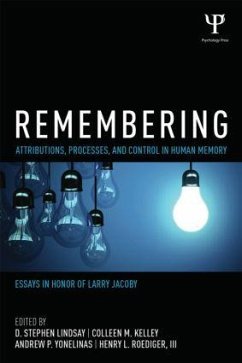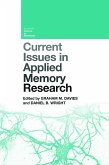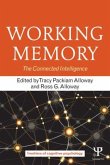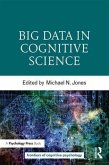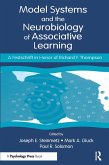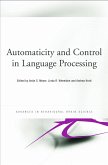Remembering
Attributions, Processes, and Control in Human Memory
Herausgeber: Lindsay, D Stephen; Roediger III, Henry L; Yonelinas, Andrew P; Kelley, Colleen M
Remembering
Attributions, Processes, and Control in Human Memory
Herausgeber: Lindsay, D Stephen; Roediger III, Henry L; Yonelinas, Andrew P; Kelley, Colleen M
- Broschiertes Buch
- Merkliste
- Auf die Merkliste
- Bewerten Bewerten
- Teilen
- Produkt teilen
- Produkterinnerung
- Produkterinnerung
In this volume, many of the world's foremost memory scientists present their cutting-edge research into the nature of human memory. Major themes include the foundations of memory theory; the contribution of different processes to memory performance; the latest findings on cognitive control; developmental perspectives with a special emphasis on aging; and the clinical, social, and forensic applications of memory research. This fresh and wide-ranging overview of the field provides an important resource for researchers and advanced students in cognitive psychology and neuroscience.
Andere Kunden interessierten sich auch für
![Current Issues in Applied Memory Research Current Issues in Applied Memory Research]() Current Issues in Applied Memory Research68,99 €
Current Issues in Applied Memory Research68,99 €![Working Memory Working Memory]() Working Memory83,99 €
Working Memory83,99 €![The Basis of Memory (Ple: Memory) The Basis of Memory (Ple: Memory)]() W R BousfieldThe Basis of Memory (Ple: Memory)60,99 €
W R BousfieldThe Basis of Memory (Ple: Memory)60,99 €![Big Data in Cognitive Science Big Data in Cognitive Science]() Big Data in Cognitive Science71,99 €
Big Data in Cognitive Science71,99 €![Model Systems and the Neurobiology of Associative Learning Model Systems and the Neurobiology of Associative Learning]() Model Systems and the Neurobiology of Associative Learning68,99 €
Model Systems and the Neurobiology of Associative Learning68,99 €![Automaticity and Control in Language Processing Automaticity and Control in Language Processing]() Automaticity and Control in Language Processing46,99 €
Automaticity and Control in Language Processing46,99 €![Beyond Emotional Intelligence Beyond Emotional Intelligence]() Jim KarolBeyond Emotional Intelligence18,99 €
Jim KarolBeyond Emotional Intelligence18,99 €-
-
-
In this volume, many of the world's foremost memory scientists present their cutting-edge research into the nature of human memory. Major themes include the foundations of memory theory; the contribution of different processes to memory performance; the latest findings on cognitive control; developmental perspectives with a special emphasis on aging; and the clinical, social, and forensic applications of memory research. This fresh and wide-ranging overview of the field provides an important resource for researchers and advanced students in cognitive psychology and neuroscience.
Hinweis: Dieser Artikel kann nur an eine deutsche Lieferadresse ausgeliefert werden.
Hinweis: Dieser Artikel kann nur an eine deutsche Lieferadresse ausgeliefert werden.
Produktdetails
- Produktdetails
- Verlag: Taylor & Francis
- Seitenzahl: 406
- Erscheinungstermin: 23. Oktober 2014
- Englisch
- Abmessung: 226mm x 150mm x 23mm
- Gewicht: 558g
- ISBN-13: 9781848725546
- ISBN-10: 184872554X
- Artikelnr.: 40849256
- Herstellerkennzeichnung
- Libri GmbH
- Europaallee 1
- 36244 Bad Hersfeld
- gpsr@libri.de
- Verlag: Taylor & Francis
- Seitenzahl: 406
- Erscheinungstermin: 23. Oktober 2014
- Englisch
- Abmessung: 226mm x 150mm x 23mm
- Gewicht: 558g
- ISBN-13: 9781848725546
- ISBN-10: 184872554X
- Artikelnr.: 40849256
- Herstellerkennzeichnung
- Libri GmbH
- Europaallee 1
- 36244 Bad Hersfeld
- gpsr@libri.de
D. Stephen Lindsay is Professor of Psychology and Coordinator of the Cognition and Brain Sciences Program at the University of Victoria, British Columbia, Canada. He was Editor-in-Chief of the Journal of Experimental Psychology: General from 2001 to 2007, is currently an Associate Editor of Psychological Science, and in 2015 will begin serving as Editor-in-Chief of Psychological Science. Colleen M. Kelley is a cognitive psychologist with a research focus on memory processes. Much of her work has focused on the interpretation of subjective cues such as fluency of processing in memory and metamemory judgments. She is currently a member of the Steering Committee of the International Association of Metacognition and has served on the editorial boards of a number of journals. Andrew P. Yonelinas is a cognitive psychologist with expertise in quantitative modeling and memory disorders. He is an expert in memory models, measurement methodology, and quantitative analysis. He has published extensively on memory theory, measurement, and memory disorders associated with age-related changes including normal aging, stroke, cardiac arrest, and Alzheimer's disease. He developed a highly influential model of memory retrieval that has become the standard in the field and is featured in several textbooks. Henry L. Roediger, III holds an endowed chair at Washington University in St. Louis, Missouri, USA, and is in the top echelon of researchers in cognitive psychology. He published highly influential work on "implicit" memory in the 1980s, and in the 1990s he and coauthor Kathleen McDermott popularized and greatly extended a procedure for fostering false memories that had initially been introduced in the 1950s by James Deese. The Deese-Roediger-McDermott or DRM method has been used in hundreds of published studies and it continues to be very popular today.
Part 1: Characterizing and Studying Memory. Nairne
Adaptive Memory: Novel Findings Acquired Through Forward Engineering. Bjork
Forgetting as a Friend to Learning. Neely
Testing and Retrieval Practice Effects: Assessing the Contributions of Encoding and Retrieval Mechanisms. Dunlosky
The Contribution of Processing Fluency (and Beliefs) to People's Judgments of Learning. Hunt
Using Process Dissociation Procedure to Establish Boundaries of Process Dissociation Theory: The Case of Category Cued Recall. Part 2: Memory and Beyond: Separating Processes. Yonelinas
Dissociating Processes within Recognition
Perception
and Working Memory. Milliken
Event Integration
Awareness
and Short-Term Remembering. Dobbins
Forecasting versus Fitting; Dissociating versus Describing: Celebrating Larry Jacoby's Methodological Approach to Understanding Recognition. McElree
Memory Processes Underlying Real-time Language Comprehension. Part 3: Cognitive Control. Logan
Memory is Everywhere. Bugg
"Automatic Control" of Interference: Evidence and Implications for Aging. Koriat
Knowing by Doing: When Metacognitive Monitoring Follows Metacognitive Control. Kelley
Constrained Retrieval in Recognition Memory. Lindsay
Recognition Memory Response Bias is Conservative for Paintings and We Don't Know Why. Part 4: Development and Aging. Craik
Familiarity and Recollections: Interactions with Larry Jacoby. Jennings
Improving Memory and Executive Function in Older Adults with Memory Impairments through Recollection-Lag Training. Sommers
You Aren't Listening to What I Said: False Hearing in Young and Older Adults. Balota
Attention
Variability
and Biomarkers in Alzheimer's Disease. Part 5: Clinical
Social
and Forensic Applications. Harrison
Taxonomy of Transfer to Cognitive Abilities: The Case of Working Memory Training. Hertel
Cognition in Emotional Disorders: An Abundance of Habit and a Dearth of Control. Payne
Behavior Priming as Memory Misattribution. Roediger
Understanding the Relation between Confidence and Accuracy in Reports from Memory.
Adaptive Memory: Novel Findings Acquired Through Forward Engineering. Bjork
Forgetting as a Friend to Learning. Neely
Testing and Retrieval Practice Effects: Assessing the Contributions of Encoding and Retrieval Mechanisms. Dunlosky
The Contribution of Processing Fluency (and Beliefs) to People's Judgments of Learning. Hunt
Using Process Dissociation Procedure to Establish Boundaries of Process Dissociation Theory: The Case of Category Cued Recall. Part 2: Memory and Beyond: Separating Processes. Yonelinas
Dissociating Processes within Recognition
Perception
and Working Memory. Milliken
Event Integration
Awareness
and Short-Term Remembering. Dobbins
Forecasting versus Fitting; Dissociating versus Describing: Celebrating Larry Jacoby's Methodological Approach to Understanding Recognition. McElree
Memory Processes Underlying Real-time Language Comprehension. Part 3: Cognitive Control. Logan
Memory is Everywhere. Bugg
"Automatic Control" of Interference: Evidence and Implications for Aging. Koriat
Knowing by Doing: When Metacognitive Monitoring Follows Metacognitive Control. Kelley
Constrained Retrieval in Recognition Memory. Lindsay
Recognition Memory Response Bias is Conservative for Paintings and We Don't Know Why. Part 4: Development and Aging. Craik
Familiarity and Recollections: Interactions with Larry Jacoby. Jennings
Improving Memory and Executive Function in Older Adults with Memory Impairments through Recollection-Lag Training. Sommers
You Aren't Listening to What I Said: False Hearing in Young and Older Adults. Balota
Attention
Variability
and Biomarkers in Alzheimer's Disease. Part 5: Clinical
Social
and Forensic Applications. Harrison
Taxonomy of Transfer to Cognitive Abilities: The Case of Working Memory Training. Hertel
Cognition in Emotional Disorders: An Abundance of Habit and a Dearth of Control. Payne
Behavior Priming as Memory Misattribution. Roediger
Understanding the Relation between Confidence and Accuracy in Reports from Memory.
Part 1: Characterizing and Studying Memory. Nairne
Adaptive Memory: Novel Findings Acquired Through Forward Engineering. Bjork
Forgetting as a Friend to Learning. Neely
Testing and Retrieval Practice Effects: Assessing the Contributions of Encoding and Retrieval Mechanisms. Dunlosky
The Contribution of Processing Fluency (and Beliefs) to People's Judgments of Learning. Hunt
Using Process Dissociation Procedure to Establish Boundaries of Process Dissociation Theory: The Case of Category Cued Recall. Part 2: Memory and Beyond: Separating Processes. Yonelinas
Dissociating Processes within Recognition
Perception
and Working Memory. Milliken
Event Integration
Awareness
and Short-Term Remembering. Dobbins
Forecasting versus Fitting; Dissociating versus Describing: Celebrating Larry Jacoby's Methodological Approach to Understanding Recognition. McElree
Memory Processes Underlying Real-time Language Comprehension. Part 3: Cognitive Control. Logan
Memory is Everywhere. Bugg
"Automatic Control" of Interference: Evidence and Implications for Aging. Koriat
Knowing by Doing: When Metacognitive Monitoring Follows Metacognitive Control. Kelley
Constrained Retrieval in Recognition Memory. Lindsay
Recognition Memory Response Bias is Conservative for Paintings and We Don't Know Why. Part 4: Development and Aging. Craik
Familiarity and Recollections: Interactions with Larry Jacoby. Jennings
Improving Memory and Executive Function in Older Adults with Memory Impairments through Recollection-Lag Training. Sommers
You Aren't Listening to What I Said: False Hearing in Young and Older Adults. Balota
Attention
Variability
and Biomarkers in Alzheimer's Disease. Part 5: Clinical
Social
and Forensic Applications. Harrison
Taxonomy of Transfer to Cognitive Abilities: The Case of Working Memory Training. Hertel
Cognition in Emotional Disorders: An Abundance of Habit and a Dearth of Control. Payne
Behavior Priming as Memory Misattribution. Roediger
Understanding the Relation between Confidence and Accuracy in Reports from Memory.
Adaptive Memory: Novel Findings Acquired Through Forward Engineering. Bjork
Forgetting as a Friend to Learning. Neely
Testing and Retrieval Practice Effects: Assessing the Contributions of Encoding and Retrieval Mechanisms. Dunlosky
The Contribution of Processing Fluency (and Beliefs) to People's Judgments of Learning. Hunt
Using Process Dissociation Procedure to Establish Boundaries of Process Dissociation Theory: The Case of Category Cued Recall. Part 2: Memory and Beyond: Separating Processes. Yonelinas
Dissociating Processes within Recognition
Perception
and Working Memory. Milliken
Event Integration
Awareness
and Short-Term Remembering. Dobbins
Forecasting versus Fitting; Dissociating versus Describing: Celebrating Larry Jacoby's Methodological Approach to Understanding Recognition. McElree
Memory Processes Underlying Real-time Language Comprehension. Part 3: Cognitive Control. Logan
Memory is Everywhere. Bugg
"Automatic Control" of Interference: Evidence and Implications for Aging. Koriat
Knowing by Doing: When Metacognitive Monitoring Follows Metacognitive Control. Kelley
Constrained Retrieval in Recognition Memory. Lindsay
Recognition Memory Response Bias is Conservative for Paintings and We Don't Know Why. Part 4: Development and Aging. Craik
Familiarity and Recollections: Interactions with Larry Jacoby. Jennings
Improving Memory and Executive Function in Older Adults with Memory Impairments through Recollection-Lag Training. Sommers
You Aren't Listening to What I Said: False Hearing in Young and Older Adults. Balota
Attention
Variability
and Biomarkers in Alzheimer's Disease. Part 5: Clinical
Social
and Forensic Applications. Harrison
Taxonomy of Transfer to Cognitive Abilities: The Case of Working Memory Training. Hertel
Cognition in Emotional Disorders: An Abundance of Habit and a Dearth of Control. Payne
Behavior Priming as Memory Misattribution. Roediger
Understanding the Relation between Confidence and Accuracy in Reports from Memory.

